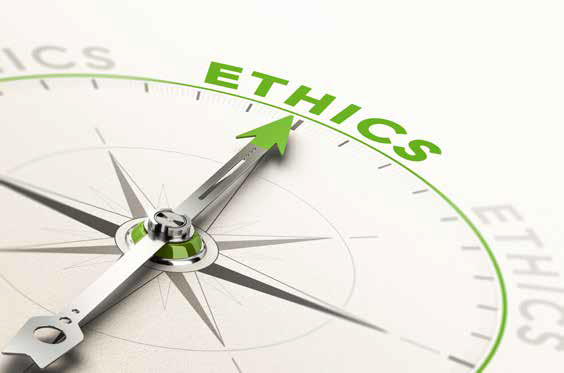
In 2001, Vincent Calarco was riding high. His hard work and business savvy had put him atop Crompton Corporation — a US$4 billion multinational specialty chemical manufacturing company. Just one year later, his house and Crompton’s corporate offices in New York and London were raided by law enforcement officers investigating allegations of antitrust violations. This was the beginning of the end of what, until that point, had been a very successful career.
Like many CEOs, Calarco was a brilliant, hardworking businessman. He had an undergraduate degree in chemical engineering and held an MBA with distinction from the Harvard Business School. After leaving school, he worked his way up the corporate ladder to become the president of Uniroyal Chemical Corporation in 1979. He served in that position until Uniroyal sold the business to Avery Inc. in 1986, but he managed to retain the top spot following the divestiture. In 1996, Calarco became the president and CEO of Crompton & Knowles following its acquisition of Uniroyal Chemical. Continuing to grow his company by acquisition, Calarco oversaw a merger with Witco Corporation three years later, which created the Crompton Corporation, where he served as CEO and president.
However, as later investigations revealed, while Calarco was working to grow his company, unbeknownst to him, there was a malignancy festering in the rubber chemical business he had led for over two decades. For many years, senior Uniroyal employees in the rubber chemical business fixed rubber chemical prices with other manufacturers in violation of antitrust laws in the United States, Canada, Japan, and the European Union. Criminal indictments were handed down to two of Crompton’s senior executives involved in the scheme. Crompton ultimately paid millions in attorneys’ fees and hundreds of millions in fines and lawsuit settlements. And, although he was not involved in any criminal activity, the Crompton board forced Calarco to leave the company, bringing an end to a distinguished career.
Sadly, this is a scenario repeated hundreds, if not thousands, of times every year. Bright, talented, honest business professionals are sidelined with shattered reputations and unused potential. Despite the proliferation of compliance and ethics offices, since the 1991 publication of Chapter 8 of the Federal Sentencing Guidelines, the number of corporations prosecuted and convicted for federal crimes in the United States has not diminished nor has the number of individual white-collar defendants terminated and convicted. The US Justice Department reports that, in the 2018 fiscal year, it increased white-collar prosecutions by more than three percent, charging more than 6,500 defendants, an annual rate that has changed little over the last three decades.
Taking these dismal statistics into account, it is hard to find evidence that corporate compliance and ethics professionals and corporate counsel are having a measurable positive impact on performance. Although we have produced policies, procedures, controls, and training programs by the truckload, we have failed to reduce criminal misconduct in the corporations we serve. A change in tactics and focus is required to achieve a different result.
Instead of drafting more policies and procedures, let’s start this new year by trying something new. Let’s focus all our efforts on the one thing that drives behavior in every organization — leadership. Specifically, let’s devote ourselves to helping honest business leaders like Calarco create corporate cultures in which violating the law would be unthinkable. To succeed in doing so, we will need to summon the courage and organizational savvy to confront and overcome three significant headwinds: cognitive overload, arrogance, and ignorance.
Cognitive overload
Like Calarco, CEOs of large corporations have a lot on their plate. Running complex organizations well puts a strain on the mental capacity of even the most brilliant business people. Taking on the additional burden of deliberately engineering a strong ethical culture requires a deep commitment and a sustained effort that even the most well-intentioned executives may avoid in order to maintain their focus on more pressing day-to-day obligations.
Arrogance
Most CEOs have very healthy egos. Many are not inclined to seek or listen to advice offered by their subordinates about how to run the company. So, even if you succeed in getting an opportunity to coach your CEO, your recommendations may fall on deaf ears.
Ignorance
Business schools don’t teach their students how to build and sustain strong ethical cultures. So, business leaders need to figure this out on their own. Even if they may be inclined to do so, many business leaders are not nearly as sure-footed in the ethics arena as they are in the many more tangible aspects of running a business. What, exactly, should business leaders do on a day-to-day basis to drive ethical performance in the workplace? To offer meaningful guidance to business leaders, we must develop the expertise necessary to provide a clear, practical answer to this question.
A path to ethical excellence
Overcoming these headwinds is a daunting undertaking and we may fail many more times than we succeed. But that does not mean we shouldn’t try. To pursue ethical excellence in our firms’ executive ranks, we have got to find a way to reach our leaders and teach them practical steps they can take every day to build a strong ethical culture. One way to start is to find a way to persuade leaders to take the following three essential steps:
- Define their moral chalk lines and have the courage to live by them;
- Make a point of speaking frequently about the company’s commitment to high ethical standards and providing practical examples of what that means; and
- Be uncompromising in taking disciplinary action against those who violate the company’s ethics standards regardless of their value to the organization.
Taking these steps will not guarantee success and may not have been sufficient to avert Crompton’s legal catastrophe, but they will begin to point your firm, and its leaders, in the right direction.




